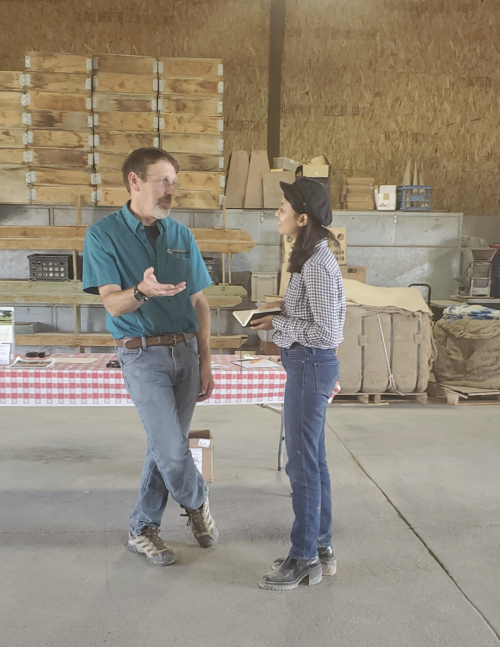This summer, I had the incredible opportunity to be the first USC Annenberg Center for Climate Journalism and Communication rural climate reporting fellow.
I spent two months reporting at the Malheur Enterprise, a local newspaper based in Vale, which is a small town in southeastern Oregon. This was quite a new experience for someone who, up to that point, had lived in cities all her life. But the people welcomed me with open arms, were delighted to share their stories with me and listened to mine with the same enthusiasm.
During this time, I also had the opportunity to participate in the Climate Center’s training sessions on how to report on climate in rural communities. These sessions, spanning over the two months of my fellowship, helped me understand better what rural communities truly needed.
For example, Malheur County, where Vale is located, is the poorest county in Oregon. More than 20% people in the county live in poverty, almost double the rate of poverty seen nationally. And you could see it when walking around some of the towns in the county. While I had the chance to live in a beautiful, refurbished historic home during my time there, my neighbors across the street lived in homes with broken windows that were patched up with tarps and tape.
But as much as they struggle, people in Malheur County also survive. They have faced and continue to face several challenges, but they are resilient and still carry the pioneer spirit within them that brought their ancestors to Oregon several years ago.
To me, that represents the essence of rural reporting: talking about the issues that really concern these communities. And this means reporting on the issues that are related to their daily routines, their livelihoods.
And it matters, because whether or not people believe that climate change is real or that political action is necessary, we are seeing unprecedented disasters and events that people need to be prepared for. I believe that education and communication is our best bet against the climate crisis and that we need to give people the information and tools they need to protect themselves.
Through the four rural climate reporting training sessions, I started to learn how to effectively report on climate issues in a county where many, including some elected officials, believe that climate change is not real.
Allison Agsten, director of the Climate Center and Pawan Ahuja, academic program administrator for the Center, brought in a wide array of guest speakers, from scientists and experts to government officials and journalists, all of whom brought a vast amount of knowledge to these sessions.
Kaitlyn Trudeau from Climate Central and Dr. Tori Espensen from SciLine spoke about finding the right experts and sources to help our readers understand the science. Dr. Erica Fleishman and Dr. Rebecca Miller offered us incredible insight into wildfires in the American West, covering science, policy, insurance and how people can protect themselves. Casi Callaway, chief resilience officer for Mobile, Alabama, explained how journalists can talk about climate in conservative states, while our last speaker, Mary Nahorniak, gave us all the tools we would need to effectively research and tell a science-backed story.
The moment that most surprised me was when Dr. Fleishman and Dr. Miller mentioned that fire insurance companies have better wildfire risk maps than state or national governments. This followed a conversation about a controversial Oregon law that restricted insurance companies from using state maps for their purposes, due to fears that companies would not insure homes in areas with high risk.
I remember thinking that this means millions of people are at risk of losing everything they have before the state even realizes that. I also realized that these are the kind of stories that people need to know, the kind of stories they would care about irrespective of political beliefs.
So, during my time at the Malheur Enterprise, I tried my best to connect with the community in every story that I wrote. Vale and Malheur County made a deep impact on how I think about communities and climate change, and I hope that my words made some impact on them as well, big or small.
Shreya Agrawal is a multimedia journalist who writes about science, climate change, and environmental and social issues. She was working as the Climate Center’s first rural climate reporting fellow at Malheur Enterprise in Vale, Oregon.
